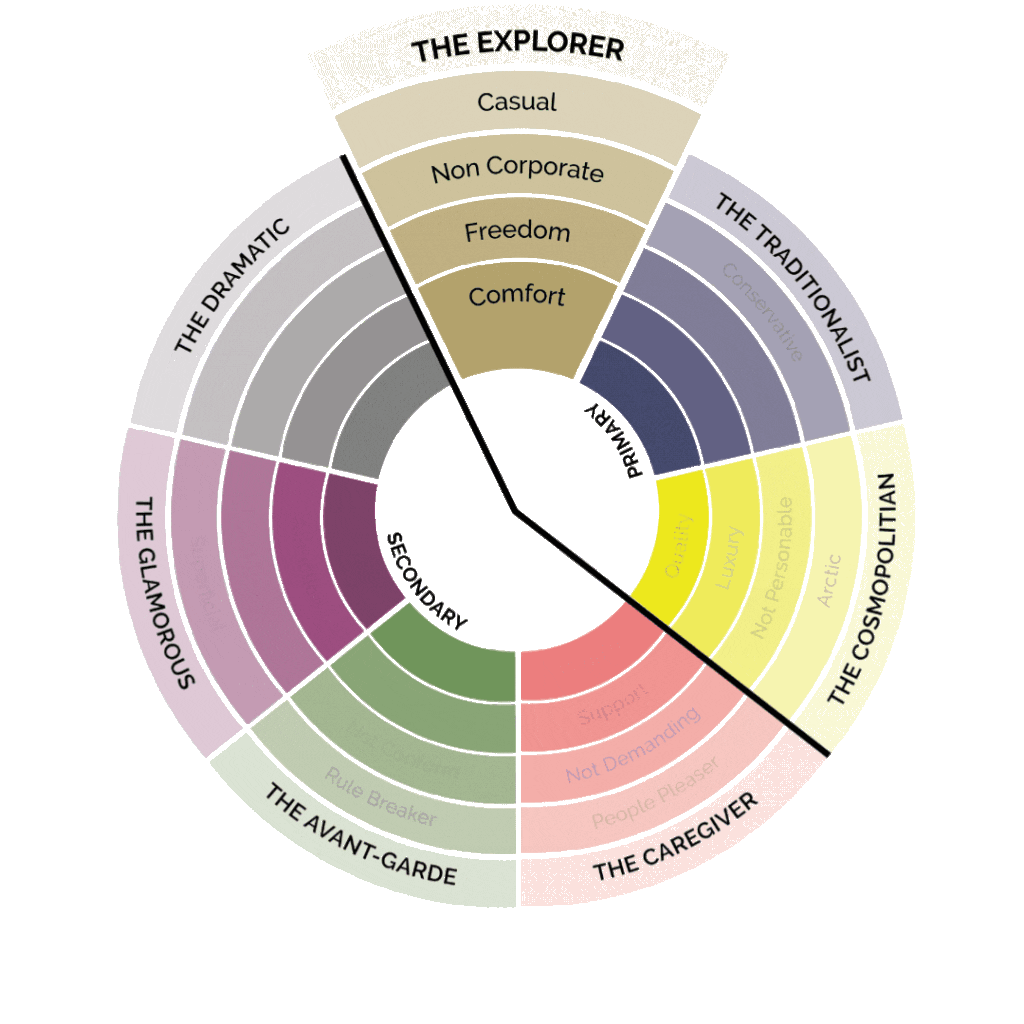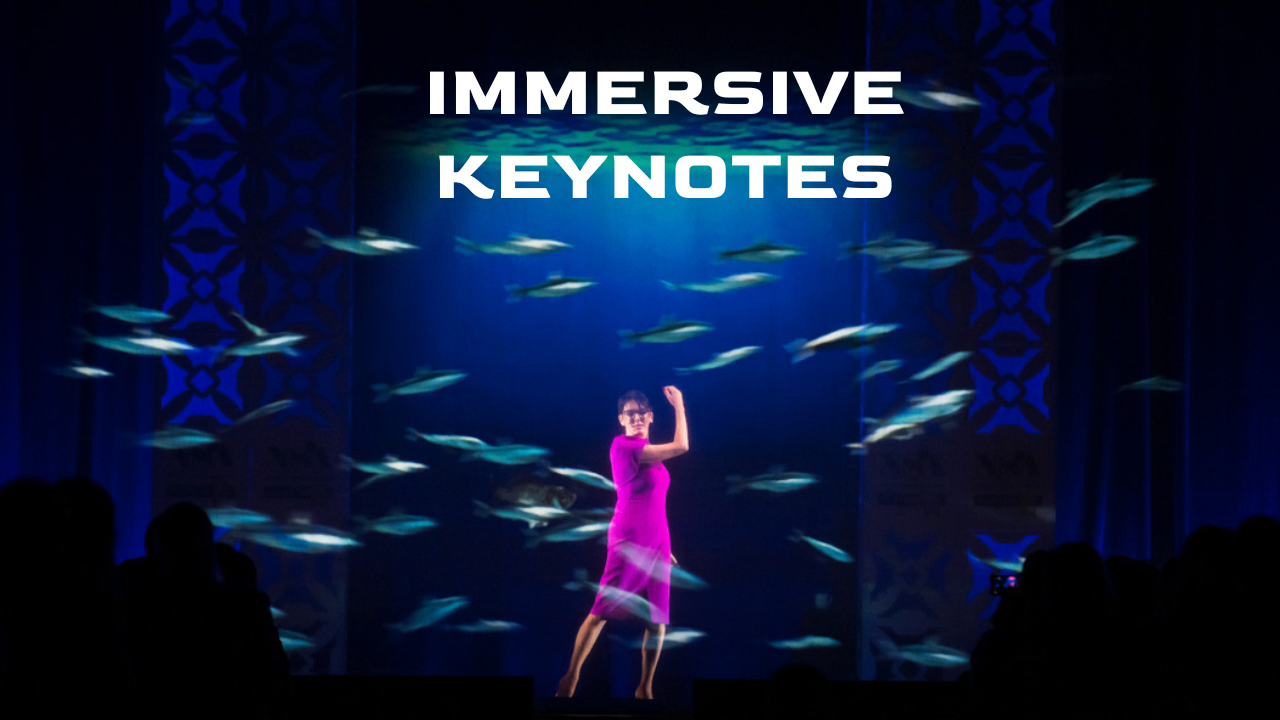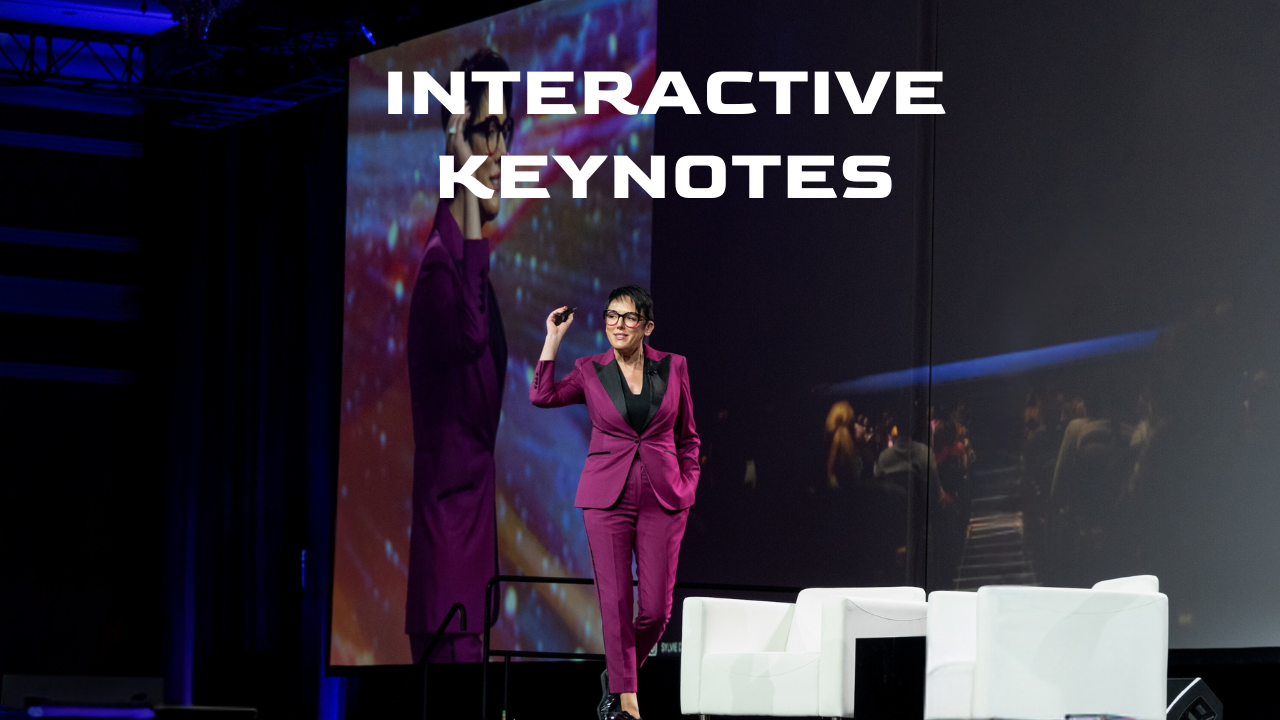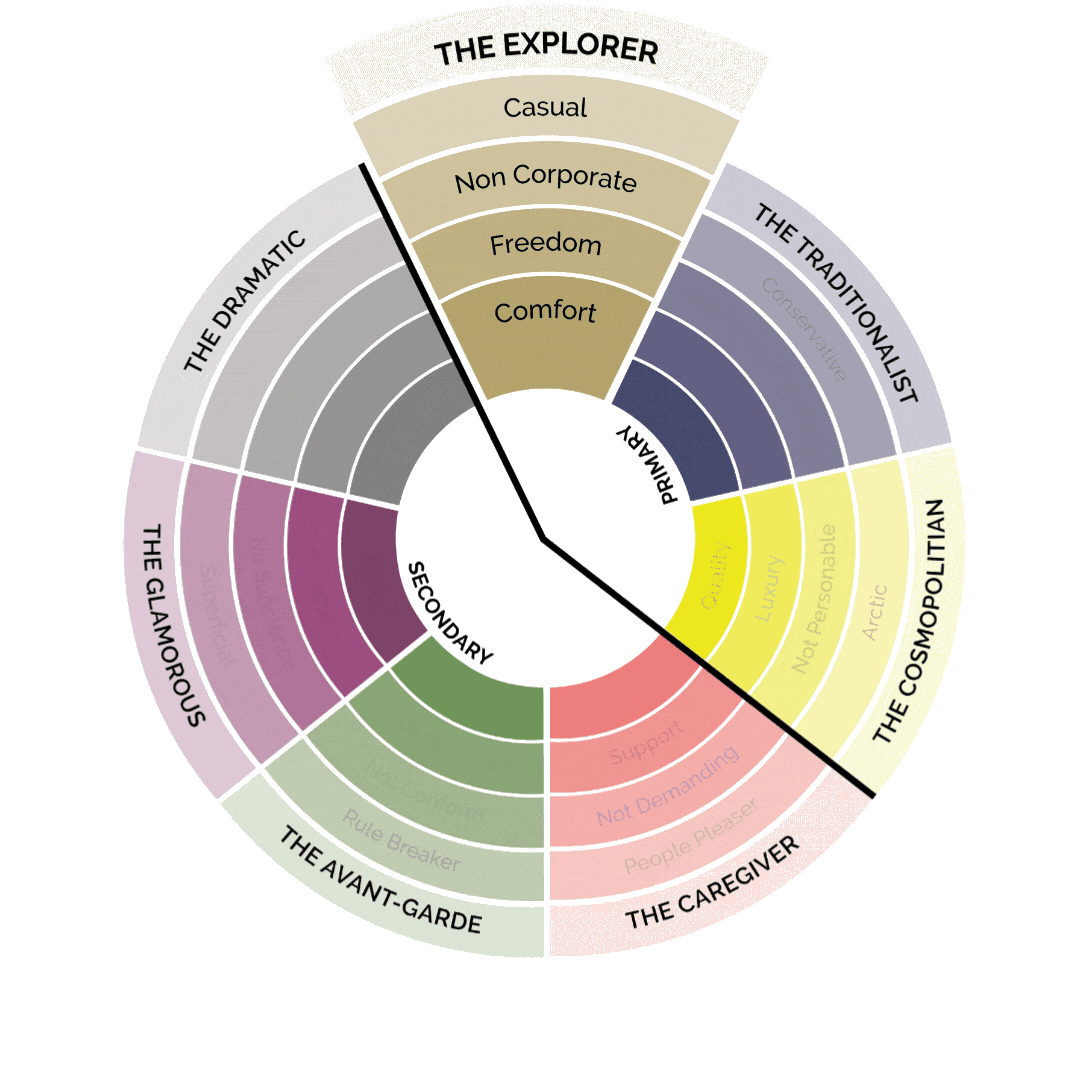The Power of Awards and Recognition in Shaping Your Professional Image
We talk a lot about results, deliverables, and performance—but rarely about what happens when your work gets formally recognized. Awards and recognition aren’t just about collecting shiny objects. They shape perception, shift positioning, and quietly signal, “Pay attention.”
Whether inside a company or out in the industry, recognition matters. It becomes a credibility shortcut, a conversation starter, a trust accelerator. And while you can’t always control who notices your work, you can influence how visible that work is. You can make excellence easier to spot.
So here’s the question: What if you stopped waiting to be noticed, and started seeing awards as a strategic part of your professional presence?
Key Takeaways
- Awards and recognition act as external validators of your expertise and value.
- They influence how others perceive your authority, trustworthiness, and relevance.
- Internal and external awards serve different roles in shaping your reputation.
- You can (and should) proactively pursue awards and recognition that align with your strengths.
- Awards signal momentum to clients, employers, and decision-makers.
- Not all recognition is in your control, but visibility and positioning are.
- Serving on a jury or award committee offers its own form of professional credibility.
But First, Behind the Scenes: From Award Recipient to Awards Juror
In 2024, I was honored to be on the receiving end of two Davey Awards. The Davey Awards are presented by the Academy of Interactive and Visual Arts (AIVA) and honor outstanding creative work from small agencies, studios, and independent creators across the globe.
They recognize creative work from small shops doing bold things. It’s about impact, not headcount. Vision, not volume. And having been on the receiving end, I can tell you: awards matter. They spotlight the unseen. They elevate the excellent. They help shape what we, collectively, value.

My 3D Immersive Experience was recognized in the categories “Best Speaker Emerging Technologies” and “Best Education Emerging Technologies.” These honors didn’t just mark a proud moment—they sparked new conversations, attracted unexpected collaborations, and deepened the perception of what’s possible when technology and thought leadership meet.
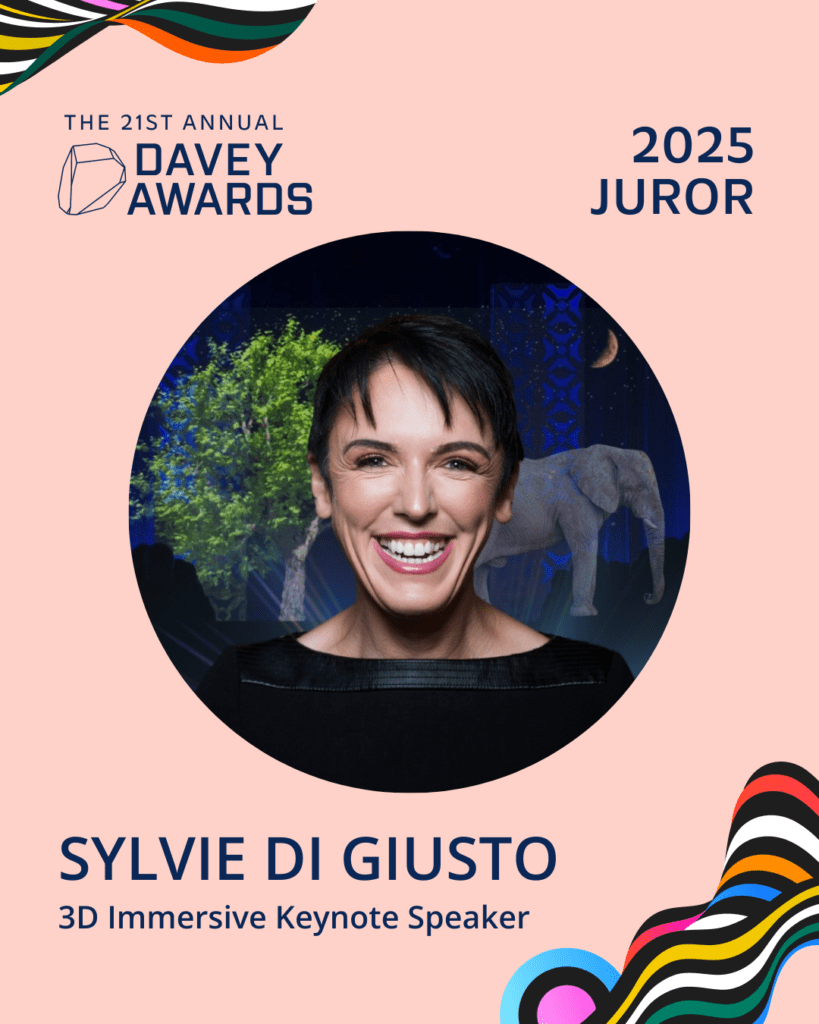
Yet my journey with the Davey Awards isn’t over. This year, I was invited to join the jury—an opportunity to help spotlight and celebrate the kind of bold, thoughtful work that inspired me in the first place. It feels full circle.
So, if you’re creating something meaningful—whether as a business owner or individual contributor—don’t wait to be discovered. Let your work be seen. Let it be considered.
And yes, the Davey Awards are currently open for submissions. You can learn more or submit your work at daveyawards.com. If you’ve created something bold, clever, or quietly brilliant—this might just be your moment. Go ahead, give your work the spotlight it deserves.
Awards and recognition don’t define your value—but they do remind others to take a closer look.
Why Awards and Recognition Shape How the World Sees You (Before You Even Speak)
We judge others in seconds. It’s human nature. We don’t take the time to study someone’s body of work, the evolution of their ideas, or the consistency of their contributions to get a full picture of their impact. Instead, in a blink of an eye we decide whether someone is impressive, credible, or relevant—often based on surface-level cues rather than substance.
And in those split seconds, awards and recognition act as powerful shortcuts—they tell people that you’re not just capable, but chosen. Recognized. Trusted by others. Before you even open your mouth, your accolades do part of the positioning work for you. A single line like “awarded by” or the visual of a trophy on a website can speak louder than paragraphs of qualifications—especially in a world where long and extensive contributions are often overlooked without a symbol of recognition to draw attention.
On top, recognition validates the quality of your work in ways that bios and resumes alone cannot. It gives shape to your narrative: not just what you do, but how well you do it. And what makes that validation especially powerful is that it comes from a third party—a respected panel, organization, or peer group—not just from you. It’s one thing to tell the world you’re good at what you do. It’s another when someone else, especially someone credible, says it first.
So, whether you’re a consultant, corporate leader, creative, or entrepreneur, awards create instant differentiation. They help others justify why they should hire you, follow you, promote you, or partner with you. Always remember, we live in a perception-driven world. And perception builds faster when it comes with an award and recognition attached.
The world rarely rewards quiet brilliance; often it rewards what it’s been shown to applaud.
The Reputation ROI of Awards and Recognition
Let’s be honest: we all want to be seen. Not for ego, but for impact. And few things elevate your professional reputation quite like meaningful awards and recognition.
Recognition builds your authority without you having to constantly prove it. It creates third-party credibility—someone else vouching for your brilliance, not just you saying it. For business owners, it adds weight to your brand story. For professionals inside organizations, it builds influence and fast-tracks leadership potential.
Awards and recognition also increase your visibility and reach, often introducing your work to new audiences and communities you wouldn’t have reached on your own. Whether it’s through industry publications, press releases, juror panels, or social buzz, recognition creates an echo far beyond your immediate circle. It’s a ripple effect that starts with one spotlight and extends into networks you may not even know exist.
Recognition also gives you a competitive edge in a crowded marketplace. When prospective clients, collaborators, or employers are comparing equally qualified candidates or providers, an award can signals not just competence, but excellence confirmed by others—and in a sea of sameness, that kind of differentiation matters.
Awards also give you something powerful to talk about. They create marketing and PR leverage—offering a natural way to share your story without sounding self-promotional. Whether it’s in a press release, newsletter, LinkedIn post, or podcast interview, recognition provides ready-made content that reinforces your value without you having to spell it out. And often, award programs themselves help amplify your visibility through their own promotional channels.
And then there’s an unexpected side effect: confidence. Not the kind that needs applause, but the kind that stands up straighter, negotiates better, and speaks with more clarity. Recognition gives you permission to own your expertise without apologizing for it.
Positioning isn’t just about what you know. It’s about how others perceive what you know. And perception? It accelerates when it’s endorsed.
In a world flooded with noise, recognition isn’t ego—it’s proof you’ve been heard.
Internal vs. External Recognition: Why You Need Both
There’s the recognition that happens within your workplace—and the kind that happens outside of it. Both are powerful. Both shape perception. But they play different roles.
Internal awards and recognition boosts your visibility within your team or organization. Think employee of the month, leadership awards, sales rankings, peer nominations. These validate how your work supports the mission from the inside. They also create internal advocates—leaders and peers who now see you as someone to recommend for the next big project or promotion. Internal awards and recognition often travel by word of mouth, subtly influencing who gets invited into key conversations or entrusted with visible opportunities. It strengthens your brand inside the building, often leading to more influence, more responsibility, and a more supportive professional network. Sometimes, the most powerful career shifts start not with a raise or title change, but with an internal nod that says, “We see you.”
External awards and recognition have a different kind of power. They speak to your standing in your industry or community. They suggest that what you do matters beyond your office walls. These are often more portable. They go with you when you change jobs, pitch clients, or speak on a stage. External awards and recognition also tend to have longer visibility—it can be cited in bios, featured in press, added to speaker reels, or referenced in keynote intros years after the fact. It becomes part of your narrative, extending your reputation far beyond the moment of receiving it. And it often invites further opportunity: when you’re publicly recognized, others start to see you as a source of insight, a thought leader in your field, or someone whose work should be watched. It’s not just credibility—it’s momentum in motion.
And the best strategy? Don’t wait for either. While internal recognition may come from hard work and consistent visibility, external awards can often be pursued intentionally. Identify the ones that reflect your strengths, values, or niche—and go after them. Because recognition, like reputation, rarely happens by accident.
An accolade doesn’t change the work—it changes how the world leans in to see it.
How to Seek Out Awards That Align With Your Expertise
You don’t need to wait for someone to hand you a gold star. Some of the most meaningful awards and recognition come from being proactive.
Start by asking: what type of excellence do I want to be known for? Innovation? Leadership? Creativity? Service? Then search for awards that align with that. There are programs for nearly every industry, niche, demographic, and discipline.
Look beyond your company. Professional associations, trade publications, nonprofits, community organizations—they all host recognition programs. Some require nominations; others are application-based. Many include peer judging or panel reviews, giving you a chance to be seen by leaders in your field.
But not all awards are equal. While some elevate your reputation, others can dilute it. There’s a real risk in aligning yourself with recognition that doesn’t truly reflect your expertise, standards, or the caliber of your achievements. In some cases, applying for (or even accepting) awards that feel misaligned can hurt your credibility rather than enhance it. Instead of signaling excellence, they may come off as superficial or opportunistic.
That’s why it’s important to be selective. Strategic. Intentional. The right awards don’t just build momentum—they amplify the version of you that’s already working. And there are specific things to look for when evaluating whether an award is worth your time, your name, and your energy:
Is the awarding organization credible and well-respected in your industry?
Does the award have a transparent selection process and judging panel?
Are the past recipients individuals or brands you admire or align with?
Is the award merit-based, or does it appear to be pay-to-play?
Will winning (or even being nominated) for this award support your positioning goals?
Is the recognition timely, relevant, and meaningful within your field?
Does the award provide any lasting visibility (e.g., press mentions, listing on their website, or promotional support)?
Will applying require significant time or money—and is the ROI worth it?
Do the criteria genuinely reflect the kind of impact you’ve made?
Would you be proud to showcase this on your website or bio?
Could the award help open doors for future collaborations, clients, or opportunities?
Are you pursuing this recognition for visibility—or just validation?
Being intentional about which awards to pursue protects your credibility and ensures that each accolade adds something meaningful to your story.
You don’t need more noise. You need the right kind of echo.
FREQUENTLY ASKED QUESTIONS
Should I nominate myself for an award, or does that seem self-promotional?
It might feel awkward, but nominating yourself is not only acceptable—it’s often expected. Many award programs rely on self-nominations because no one knows your work better than you do. If the recognition aligns with your values and you meet the criteria, advocating for yourself is not vanity—it’s strategy. Awards and recognition aren’t just for those who wait quietly to be noticed; they’re also for those who are willing to raise their hand.
What if the award requires a fee—does that make it less legitimate?
Not necessarily. Many reputable awards charge submission fees to cover administrative costs, judging panels, and promotional efforts. However, fees alone shouldn’t determine credibility. Look at the judging process, past winners, industry recognition, and whether the award aligns with your goals. A legitimate fee-based award adds value beyond the trophy—it should elevate your visibility or open doors in a meaningful way.
How often should I pursue awards and recognition?
There’s no perfect frequency, but the key is to be intentional. Instead of applying everywhere, focus on a few well-aligned opportunities that truly support your narrative and visibility goals. Awards and recognition work best when they’re part of a broader strategy—not a random scramble for accolades.
Awards And Recognition Are a Mirror, and a Megaphone

An award says more than “you did well.”
To clients, it says, “You’re in capable hands.”
To employers, it says, “This person stands out.”
To yourself, it says, “You’re allowed to be proud.”
So take note: it’s not just about the accolade. It’s about what the accolade unlocks.At their best, awards and recognition do two things: they reflect the work you’ve done and amplify the work you’re about to do. So go ahead. Nominate yourself. Celebrate the wins. Apply for the award. Share the good news. It’s not vanity. It’s visibility.
